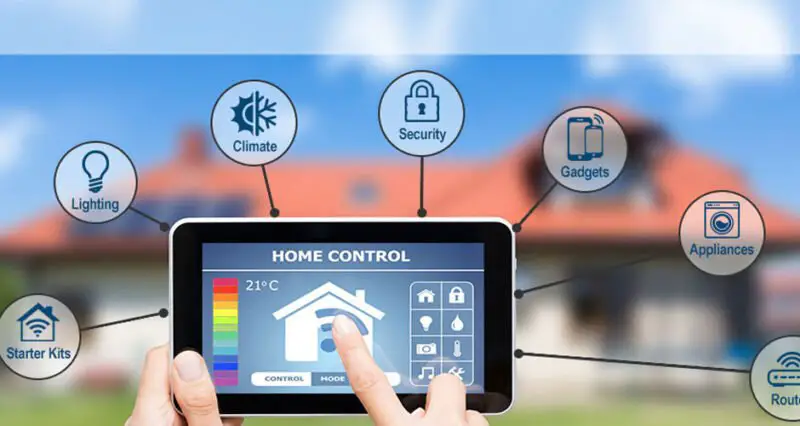
The landscape of home living is evolving at an unprecedented pace, largely driven by the surge in smart home automation technologies. As we stand on the cusp of what many consider a technological renaissance in home automation, the integration of these systems into our daily lives is not just enhancing convenience but also transforming our living spaces into more efficient, secure, and comfortable havens. This article delves into the latest smart home automation trends, exploring how they’re reshaping the future of home living, with a special focus on heating systems and value-boosting renovations.
The Rise of Smart Home Automation
The advent of smart home automation marks a significant milestone in the evolution of domestic life, heralding a new era of convenience, efficiency, and security within our living spaces. At its core, smart home automation encompasses the integration of advanced technology and connectivity into everyday household functions, allowing for unprecedented control over home environments. From intelligent heating systems that adjust to your schedule to lighting that responds to your mood, the capabilities of smart home automation extend far beyond mere gadgetry; they represent a fundamental shift in how we interact with our homes. This technological revolution not only enhances the quality of life for its users but also promises a future where homes are more energy-efficient, safer, and tailored to the individual needs of their inhabitants. As we embrace these innovations, smart home automation stands at the forefront, redefining the boundaries of home living and opening up a realm of possibilities that once seemed the stuff of science fiction.
Heating Systems: A Warm Front in Innovation
One of the most significant areas where smart technology is making strides is in the evolution of heating systems. Traditional heating solutions are being replaced by smart thermostats and heating controls that can learn from your habits and adjust the temperature accordingly. These systems can detect when the house is empty, reducing heating to save energy, and warm it up in anticipation of your return. Moreover, zone-based heating solutions allow for the temperature of each room to be controlled independently, ensuring comfort without wastage.
Value-Boosting Renovations with Smart Technology
Incorporating smart technology into home renovations is not just about embracing the future; it’s a strategic move to enhance the value of a property. From smart locks and security cameras that offer enhanced security to smart lighting systems that can simulate natural light patterns, these renovations are attracting a new generation of homeowners who value technology as a means to a more sustainable and comfortable living.
The Nexus of Comfort and Convenience
The true essence of smart home automation lies in its ability to merge comfort with convenience. Imagine waking up to the aroma of freshly brewed coffee, the curtains automatically drawing to let in the morning light, and the bathroom heated to just the right temperature. This scenario is no longer a figment of the imagination but a reality in many automated homes. The integration of AI with home automation systems is also paving the way for predictive maintenance, where appliances can alert homeowners about potential issues before they escalate, saving time and money.
Security: A Cornerstone of Smart Home Automation
As our homes become smarter, ensuring the security of these interconnected systems is paramount. The latest trends in smart home automation include advanced security features like facial recognition, motion sensors, and real-time alerts that can be managed from anywhere in the world. These systems not only deter intruders but also provide homeowners with peace of mind, knowing their homes are monitored and protected.
The Future is Green: Sustainability and Smart Homes
Another pivotal trend in smart home automation is its contribution to sustainability. By optimizing energy use, smart homes play a crucial role in reducing the carbon footprint of households. Smart meters and energy management systems allow homeowners to monitor their energy consumption in real time, making it easier to identify and cut down on unnecessary usage. Solar panels and battery storage systems are also becoming integral components of the smart home ecosystem, further enhancing its sustainability credentials.
Conclusion
As we stand at the threshold of a new era in domestic living, it is clear that smart home automation is not merely a fleeting trend but a fundamental shift in the fabric of home life. This technological revolution promises a future where our homes are not just shelters but intelligent entities that enhance our daily lives in myriad ways. The convergence of convenience, efficiency, security, and sustainability within the realm of smart home automation is paving the way for homes that are not only more responsive to our needs but also kinder to our planet.
The journey towards fully automated homes is an exciting and ongoing process, with innovations continually emerging to redefine our interaction with our living spaces. From heating systems that adapt to our routines to security systems that offer peace of mind, the potential of smart home automation is vast and varied. As these technologies become more integrated into our homes, they offer not just enhancements to our quality of life but also significant contributions to environmental sustainability through improved energy efficiency.
FAQs
We’ve put together some of the most frequently-asked questions, which we hope will answer any further queries:
Can smart home automation really save money on energy bills?
Yes, by optimizing energy usage and reducing wastage, smart home automation systems can significantly lower energy bills.
Are smart homes secure?
With advanced security features like encryption, facial recognition, and real-time alerts, smart homes offer enhanced security compared to traditional homes.
How can smart home automation boost the value of a property?
Smart home features are increasingly sought after by homebuyers, making properties with smart technologies more attractive and potentially increasing their market value.
Is it difficult to integrate smart home technologies into existing homes?
While integrating smart home technologies into existing homes can be challenging, many systems are designed for easy installation and compatibility with existing infrastructures.
Can smart home automation be customised to individual needs?
Absolutely, smart home systems offer a high degree of customisation, allowing homeowners to tailor settings and controls to their specific preferences and needs.


